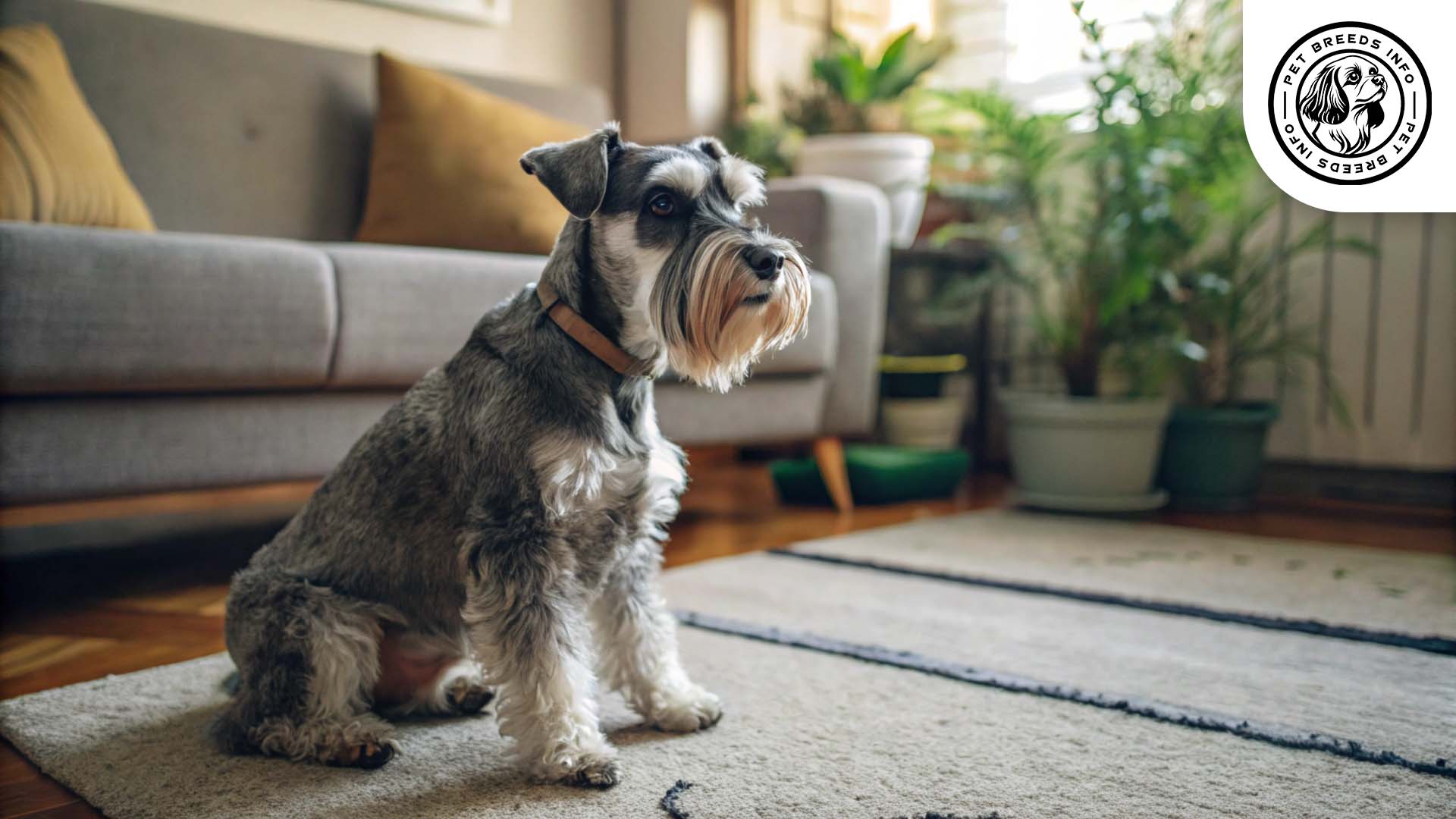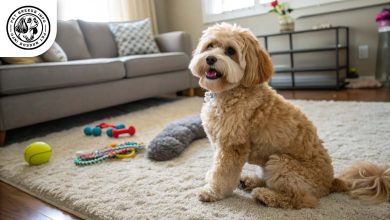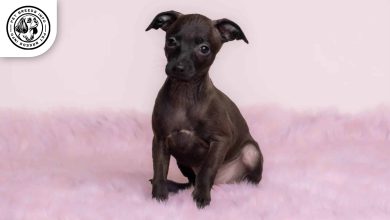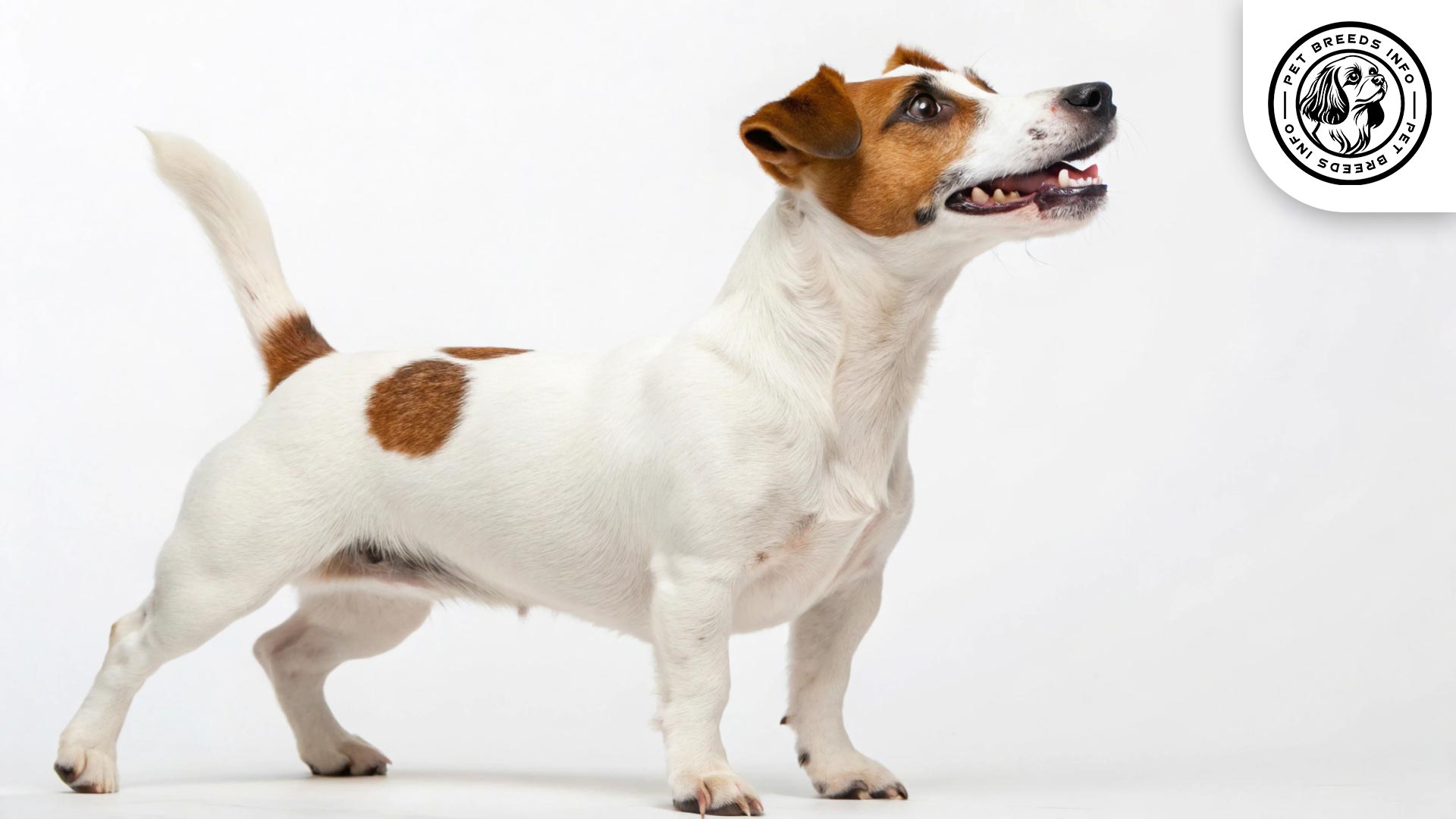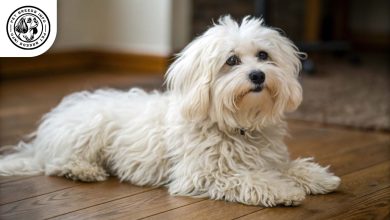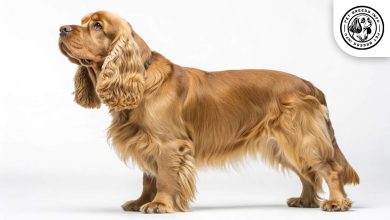Miniature Schnauzer Dog Breed : Size, Price & Personality
General Introduction of the Breed
The Miniature Schnauzer, known as “Zwergschnauzer” in German, is a small yet sturdy dog breed originating from Germany. It was developed in the late 19th century from the Standard Schnauzer, crossed with smaller breeds such as the Affenpinscher and Poodle to create a more compact version.
This breed was initially bred for farm work, primarily as a rat catcher. Over time, it gained popularity as a companion dog due to its friendly personality, intelligence, and hypoallergenic coat.
Table of Contents
| Weight | 11-20 lbs (5-9 kg) |
| Lifespan | 12-15 years |
| Diet | High-quality balanced diet (dry, wet, or raw) |
| Care | Regular grooming, exercise, and hygiene maintenance |
| Health | Prone to pancreatitis, diabetes, bladder stones, cataracts, progressive retinal atrophy |
| Color | Salt and pepper, black, black and silver, white |
| Nature | Intelligent, energetic, friendly, and social |
| Price | $1,000 – $3,000 (puppies from breeders) |
Physical Characteristics
Miniature Schnauzers are small, well-proportioned dogs. Males typically stand between 12 to 14 inches (30-36 cm) in height and weigh between 11 to 20 lbs (5-9 kg). Females are generally the same size but may be slightly lighter.
Their coat is dense and wiry, requiring regular grooming. The breed comes in several color variations, including salt and pepper, black, black and silver, and pure white.
Miniature Schnauzers have dark, oval-shaped eyes that give them a keen expression. Their ears can either be naturally floppy or cropped to stand erect. Their tail is traditionally docked, although many countries have banned this practice.
A distinct characteristic of this breed is its distinctive beard and bushy eyebrows, giving it a unique and expressive appearance.
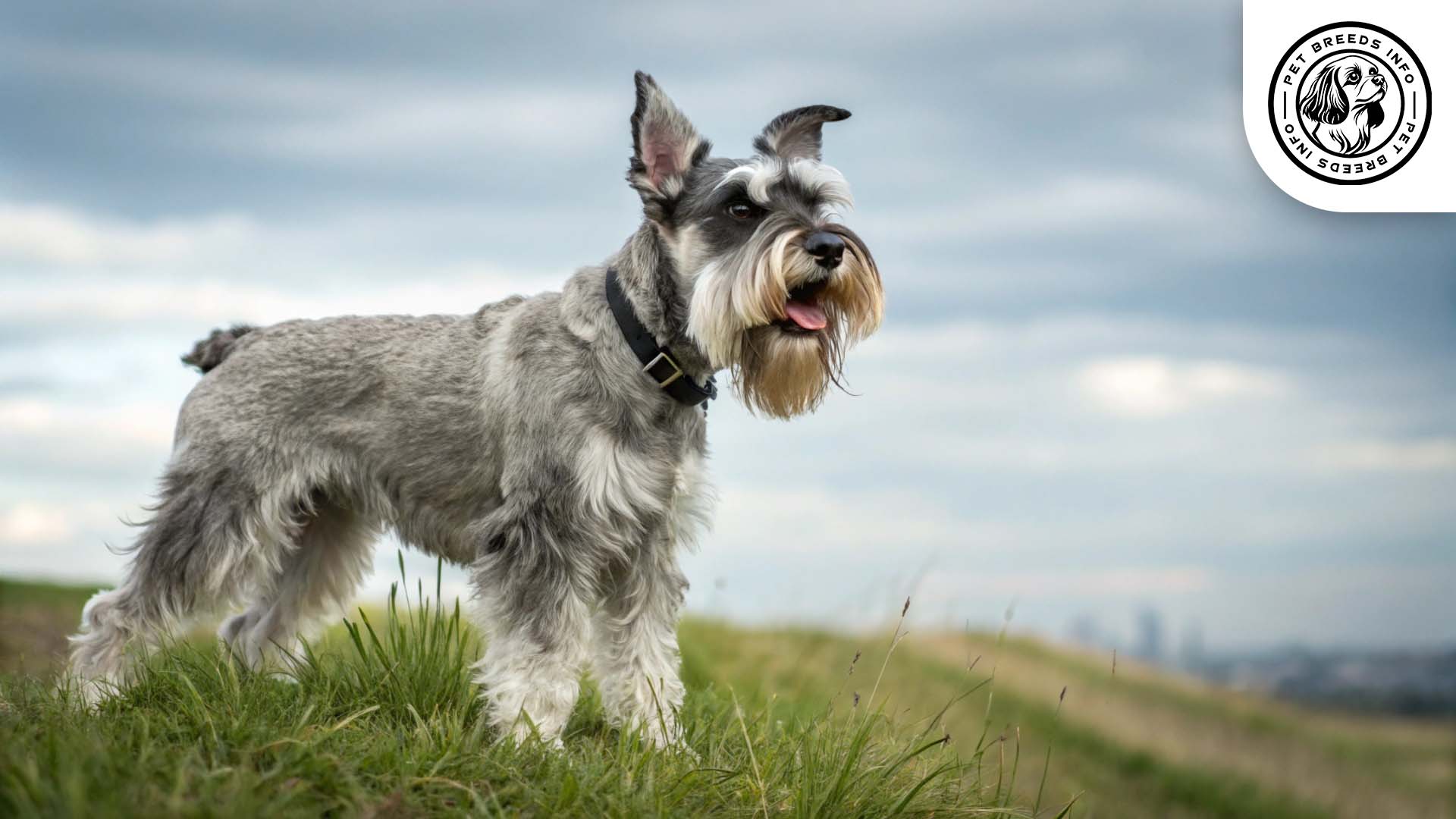
Personality and Temperament
The Miniature Schnauzer is highly intelligent and quick to learn, making training relatively easy. They are energetic dogs that require daily exercise and mental stimulation to stay happy.
They form strong attachments to their owners and thrive on companionship. This breed is social and friendly with people, including children, but early socialization is necessary to ensure well-mannered behavior.
Due to their terrier background, they have a strong prey drive and may chase small animals. However, they are also playful and enjoy interactive games.
They are highly alert and make excellent watchdogs, often barking when they sense an unfamiliar presence. They can be sensitive to environmental changes and may not tolerate being left alone for long periods.
Read More: Manchester Terrier
Care and Maintenance Requirements
Miniature Schnauzers have moderate exercise needs, requiring at least 30 to 45 minutes of activity per day. They adapt well to apartment living as long as they receive enough mental and physical stimulation.
Their wiry coat requires regular brushing to prevent matting and professional grooming every six to eight weeks. They are low-shedding, making them a good choice for allergy sufferers.
This breed is somewhat sensitive to extreme heat and cold, so precautions should be taken in harsh weather conditions.
Routine hygiene maintenance, including ear cleaning, nail trimming, and regular dental care, is essential for their overall well-being.
Diet and Nutrition
A high-quality diet is essential for maintaining the Miniature Schnauzer’s health. A balanced diet of dry kibble, wet food, or a raw diet, tailored to their specific needs, is recommended.
Owners should be cautious about feeding fatty foods, as this breed is prone to pancreatitis. Foods such as chocolate, onions, garlic, and excessive fatty meals should be avoided.
Portion control is crucial, as they have a tendency to gain weight. Feeding them two balanced meals per day is generally recommended, with portion sizes based on their weight and activity level.
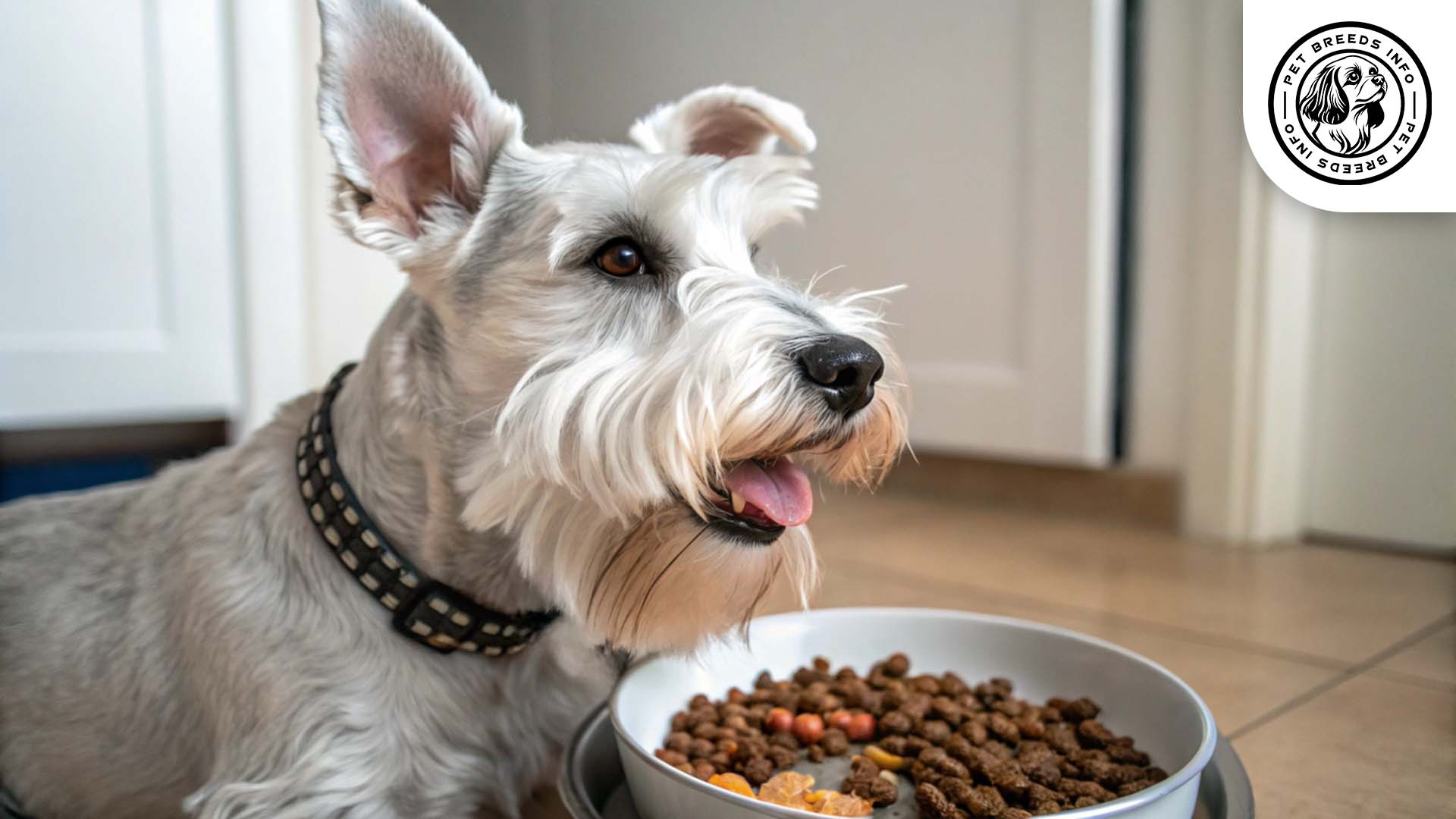
Health and Common Medical Issues
Miniature Schnauzers are relatively healthy dogs but are predisposed to certain genetic conditions. Common health issues include pancreatitis, diabetes, bladder stones, cataracts, and progressive retinal atrophy.
They have an average lifespan of 12 to 15 years with proper care. Routine veterinary visits, vaccinations, and preventive healthcare are essential for early disease detection and management.
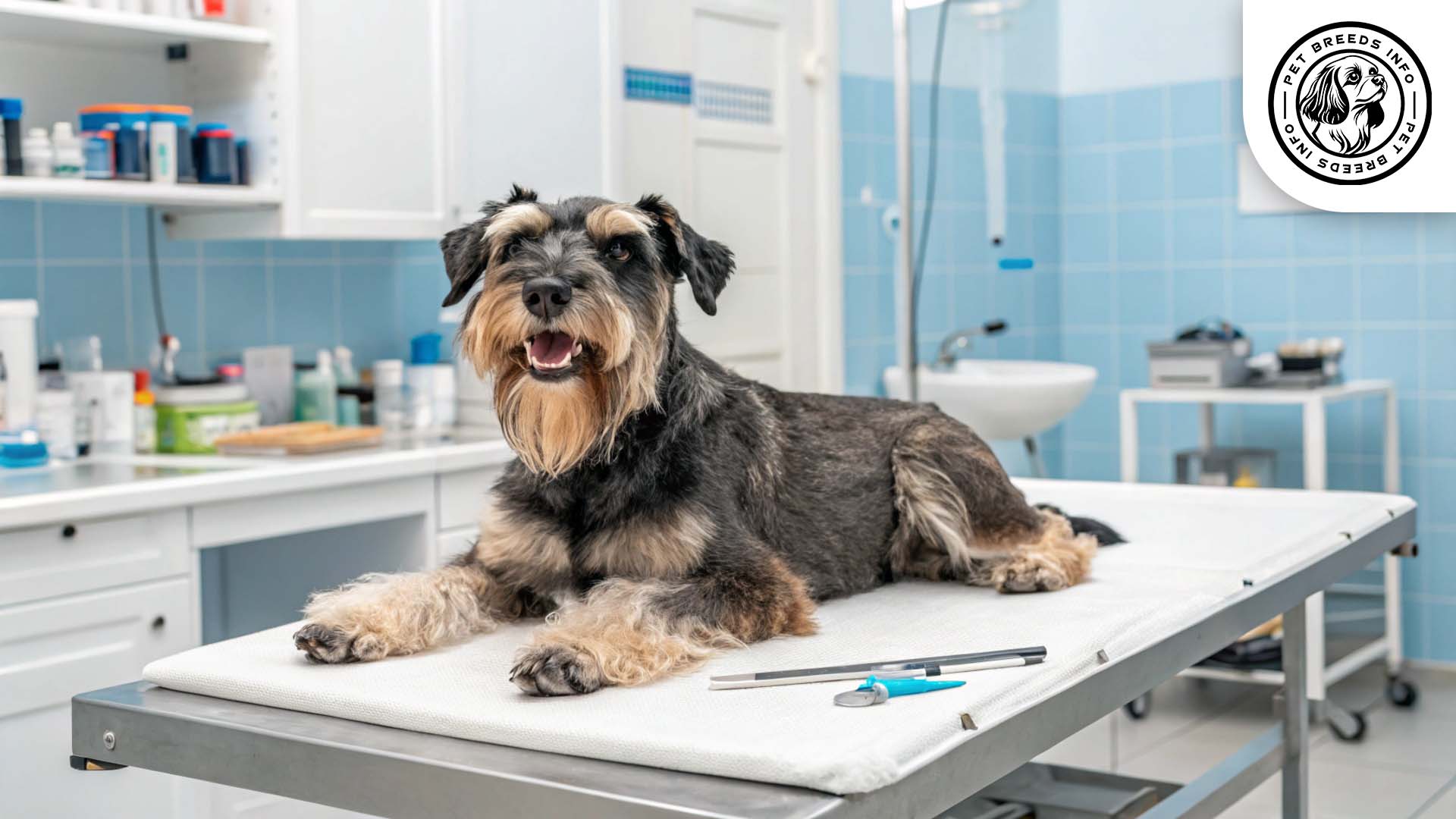
Training and Behavior Management
This breed is highly trainable due to its intelligence and eagerness to please. Positive reinforcement methods work best when training a Miniature Schnauzer.
Early socialization and obedience training are essential for preventing excessive barking and stubborn behavior.
Consistency is key in training, and establishing clear rules will help shape good behavior. Mental stimulation through puzzle toys and interactive play is highly beneficial.
Read More: Labrador Retriever Dog
Interaction with Other Animals and Humans
Miniature Schnauzers are affectionate and enjoy spending time with their family. They generally do well with children and make friendly companions.
With proper socialization, they can coexist with other pets, although caution is advised when introducing them to smaller animals due to their high prey drive.
They are best suited for families or individuals who can provide companionship and regular interaction, as they do not like being left alone for extended periods.
Price and Availability
The cost of a Miniature Schnauzer puppy varies depending on pedigree and breeder reputation, typically ranging between $1,000 to $3,000.
Adoption from rescues or shelters is a great alternative for those looking to provide a loving home to a dog in need.
When purchasing from a breeder, it is essential to choose a reputable one who conducts health screenings and provides proper care for their dogs.
Conclusion and Final Thoughts
The Miniature Schnauzer is an intelligent, affectionate, and energetic breed, making it a great choice for families and individuals alike.
Its adaptability to different living situations, combined with its loyal nature and low-shedding coat, makes it a popular choice for many dog lovers.
Potential owners should be prepared for the grooming requirements and ensure they can provide enough attention and stimulation for this social breed.
Overall, the Miniature Schnauzer is a delightful companion that brings joy, alertness, and companionship to loving homes.
Read More: Leonberger Dog
FAQ
How much exercise does a Miniature Schnauzer need daily?
Miniature Schnauzers require at least 30 to 45 minutes of exercise every day. Regular walks, playtime, and mental stimulation are crucial for keeping them happy and healthy.
Are Miniature Schnauzers good with children?
Yes, Miniature Schnauzers are generally friendly with children. They are affectionate and enjoy companionship, but early socialization is important to ensure well-mannered behavior.
What grooming is needed for a Miniature Schnauzer?
Miniature Schnauzers have a wiry coat that needs regular brushing and professional grooming every 6-8 weeks. This helps prevent matting and keeps their coat healthy.
What health issues are common in Miniature Schnauzers?
Some common health concerns include pancreatitis, diabetes, cataracts, and bladder stones. Regular vet checkups and a healthy diet can help manage these issues.
What is the cost of a Miniature Schnauzer puppy?
A Miniature Schnauzer puppy typically costs between $1,000 to $3,000, depending on the breeder and the dog’s pedigree. Adoption is also an option for those looking to provide a loving home.
